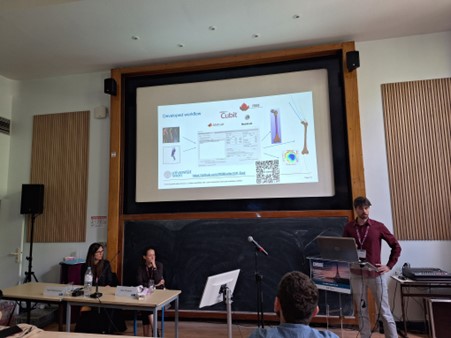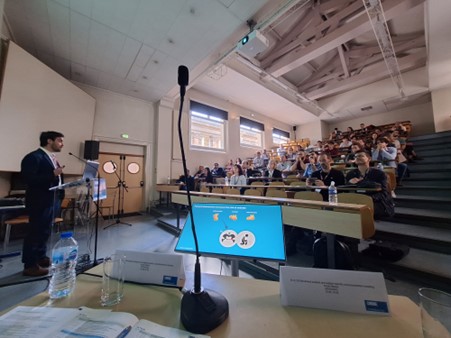
CMBBE Symposium in Paris
The 18th International Symposium on Computer Methods in Biomechanics and Biomedical Engineering (CMBBE) took place in the heart of Paris from May 2nd to May 5th. The event brought together leading experts from around the world to share their latest research and insights in the fields of biomechanics and biomedical engineering.
During the symposium, three of our lab members (Basilio, Hans, and Willi) presented their research combing 3D motion capture, musculoskeletal modeling, and medical imaging to understand the effects of bone deformities on joint loading and bone growth patterns. Ass-Prof Hans Kainz also chaired a session on 3D Movement analysis and subject-specific musculoskeletal modelling”, jointly organised with ESMAC president, Ass-Prof Ayman Assi.
The symposium featured a diverse range of topics, including musculoskeletal modeling, cardiovascular biomechanics, injury prevention, machine learning, and medical imaging. Attendees also had the opportunity to participate in a variety of practical workshops and learn more about available tools to facilitate the development of musculoskeletal simulations. Such tool include Gibbon, BIOPTIM, and SimVascular. Finally, our lab members had the chance to attend the release of the latest FEBio 4.0, and learn about the latest developments in one of the most widely used and open-source finite element modelling tool.
Overall, the 18th International Symposium on Computer Methods in Biomechanics and Biomedical Engineering was a great success, providing attendees with a wealth of knowledge and insights in these important fields. We look forward to seeing what new developments and innovations will arise from the research presented at the symposium.
The following abstracts were presented at the CMBBE from our research group.
Femoral growth plate stresses in children quantified with a semi-automated multi-scale modeling workflow
Willi Koller, Basilio Goncalves, Arnold Baca, Hans Kainz
Decreasing rectus femoris activity can decrease knee loads in people with increased femoral anteversion
Basílio Gonçalves, Willi Koller, Arnold Baca, Hans Kainz
co-contraction causes higher joint loads in people with increased neck-shaft and anteversion angles
Hans Kainz, Basílio Gonçalves, Willi Koller, Gabriel Mindler, Andreas Kranzl






